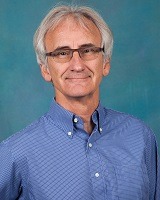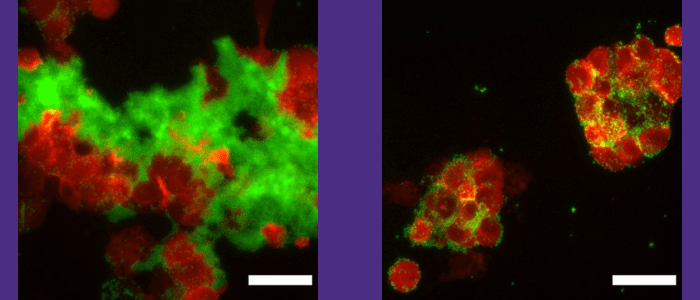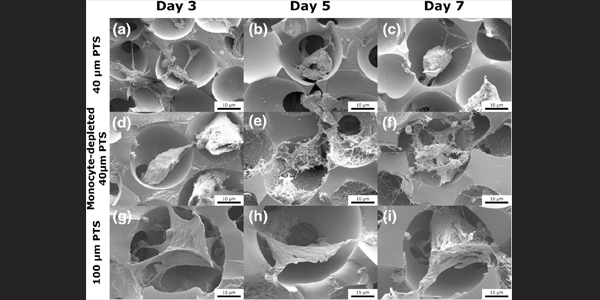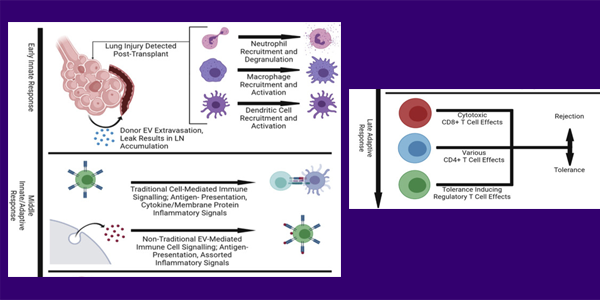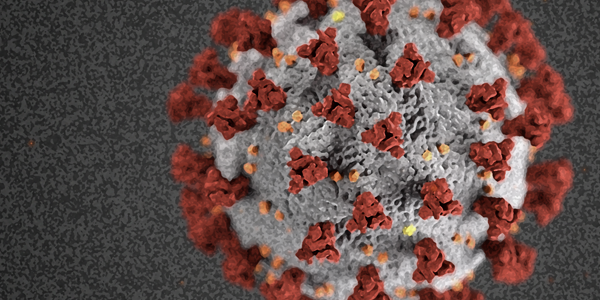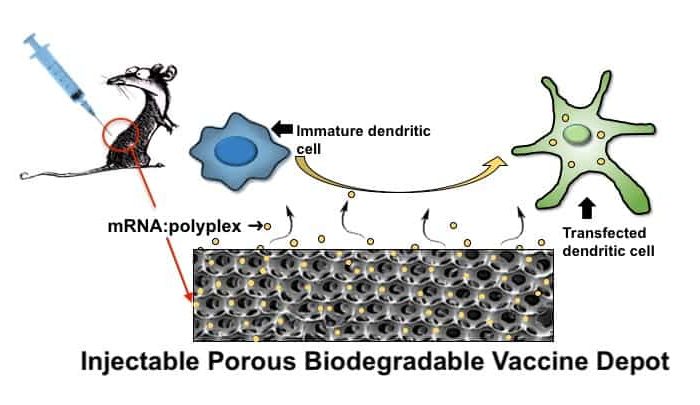Engineering Infection Immunity
This project will develop a Staphylococcus aureus (SA) vaccine delivery system comprising:
An injectable biodegradable (i.e., temporary) porous hydrogel “depot” that releases nanoparticles containing self-replicating mRNA (SR-mRNA) vaccine vectors expressing multi-valent SA adhesin genes. Novel cationic polymers condense and charge neutralize anionic SR-mRNA vaccines into nanoparticles (known as “polyplexes”) that are incorporated into the liquid hydrogel prior to injection and subsequent gelation. Specifically, we are interested in quantifying the dynamics of immunized dendritic cells in T cell and B cell activation following vaccination.
Engineering Exosomes for Tissue Regeneration
The worldwide stem cell therapy market is poised to grow at a compound annual growth rate (CAGR) of 39.5% from 2015 to 2020, reaching US$330M by 2020. However, limitations such as:
- Ethical issues related to embryonic stem cells
- Difficulties related with the preservation of stem cells
- Recent research findings that the structural contribution of stem cells to regenerated tissues is actually very small
Are starting to compromise the promised potential of stem-cell based therapies. Recent research has thus shifted away from cell based therapy to a paracrine hypothesis, investigating the stimulating factors released and received by cells, including: growth factors, cytokines, and extracellular vesicles (EVs; i.e., exosomes and microvesicles containing angiogenic factors, transcription factors, miRNAs). Work proposed here will determine whether myeloid cells, i.e., can be engineered to differentiate (or trans-differentiate) into desired non-myeloid lineages through an orchestrated engineering of EV exchange within our novel biomaterials platform.


